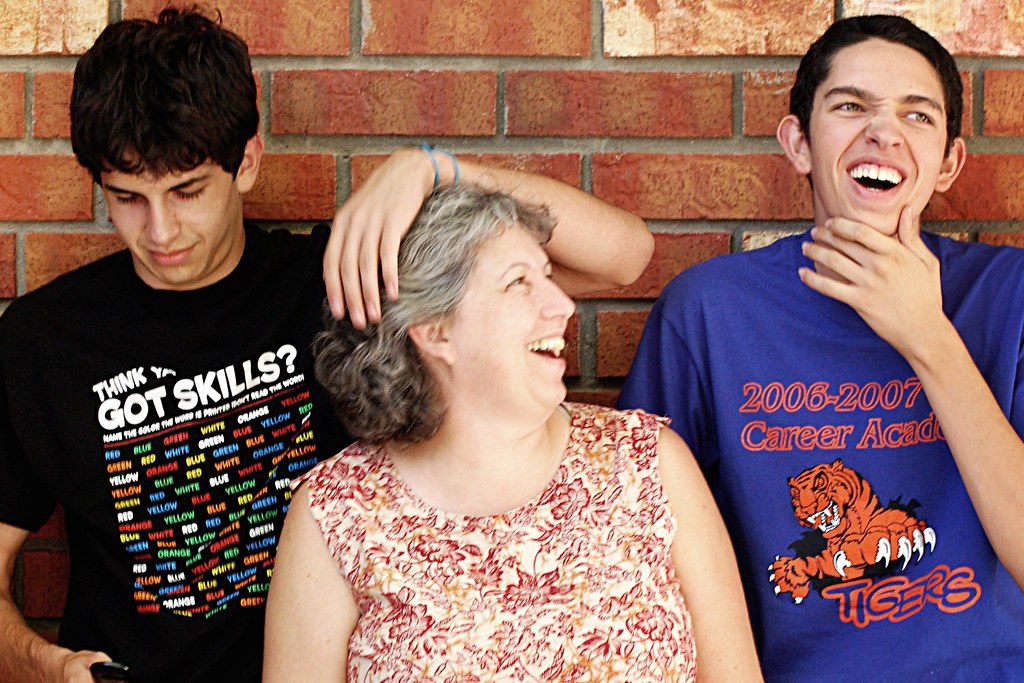
Deciding on a retirement home for yourself or a beloved family member is one of life’s most significant and emotional choices. It’s about finding a place where comfort, dignity, and quality care converge, creating a true home away from home. As you embark on this journey, one of the most crucial steps is engaging directly with the facility’s manager. They are the linchpin of the entire operation, guiding the staff, overseeing daily functions, and ultimately setting the tone for the entire community.
Asking the right questions can transform an overwhelming decision into an empowered one. It allows you to peer beyond brochures and polished presentations, gaining genuine insight into the heart and soul of the facility. This comprehensive guide is designed to arm you with the essential questions, offering a roadmap for discerning a manager’s capabilities, commitment, and alignment with your family’s values and needs. With each inquiry, you’re not just seeking an answer; you’re seeking reassurance, transparency, and a vision for the future care of your loved one.
Our goal is to empower you to make an informed decision, ensuring that the retirement home you choose provides not just a place to live, but a thriving environment where every resident is respected, supported, and cherished. Let’s dive into the most important questions you should be prepared to ask, providing clarity and confidence every step of the way.

1. **What experience do you have in managing assisted living facilities?**When considering a retirement home, one of your first inquiries should be about the manager’s direct experience: “What experience do you have in managing assisted living facilities?” This question isn’t just a formality; it’s a critical gauge of the manager’s capability and the facility’s potential for quality care. A seasoned manager will demonstrate a profound understanding of the unique challenges and responsibilities inherent in overseeing a community of older adults with diverse needs.
You’re looking for someone who can articulate a history of successful management, showcasing a deep comprehension of regulations, best practices, and the specific requirements of the elderly population. Their response should go beyond mere years of service, delving into the breadth of their roles and responsibilities. They should be able to recount specific instances where their expertise directly contributed to positive outcomes for residents and the smooth operation of the facility.
Look for evidence of progression, such as starting in a direct care role and advancing to a directorial position, indicating a comprehensive understanding from the ground up. This background reveals their commitment and growth within the field. A manager who can confidently share details of their professional journey, including special training or certifications, offers reassurance that they possess the necessary skills and dedication. This transparent demonstration of their qualifications builds a foundational trust, ensuring you are entrusting your loved one’s care to experienced hands. Their ability to manage staff, budgets, and compliance effectively hinges on this practical, hands-on experience, providing peace of mind that the facility operates under capable leadership.

2. **Describe your approach to creating a safe and secure environment for residents.**Another fundamental question to pose is: “Describe your approach to creating a safe and secure environment for residents.” The safety and well-being of residents are paramount, and the manager’s response will reveal their understanding of potential risks and their proactive strategies for mitigation. This inquiry delves into their comprehensive vision for resident protection, encompassing everything from physical safety to emotional security.
Listen for details about established safety protocols and how they are not just implemented but regularly reviewed and updated. The manager should articulate clear strategies for assessing and addressing common risks prevalent in assisted living settings, such as fire safety measures, fall prevention programs, and emergency preparedness plans. Their explanation should reflect a thorough and systematic approach to maintaining a secure environment, demonstrating a commitment to anticipating and neutralizing threats before they become issues.
Beyond policies, inquire about the training and knowledge of all staff members regarding these safety measures. It’s crucial that every individual working in the facility is not only aware of the protocols but is also proficient in executing them. Discuss any additional layers of security they employ, such as regular inspections, modern security camera systems, or robust access control for the facility. A comprehensive answer will highlight a multi-faceted approach to security, ensuring that safety is ingrained in every aspect of the facility’s operation. This proactive stance on safety and security will give you confidence that your loved one is residing in a well-protected and vigilant environment.
Read more about: 15 Global Havens: Where Your $30,000 Income Buys a Richer Life

3. **How would you handle a situation where a resident is not following the rules of the facility?**
An insightful question to ask is, “How would you handle a situation where a resident is not following the rules of the facility?” This probes the manager’s ability to navigate difficult interpersonal situations with empathy, firmness, and professionalism. In any communal living environment, rules are essential for the harmony and safety of all residents, and understanding how a manager addresses non-compliance is vital.
You’re looking for a response that outlines a step-by-step, thoughtful approach rather than a punitive one. The manager should emphasize an initial strategy of calm, respectful communication, explaining the reasons behind the rules and the impact of the resident’s behavior on others. They should illustrate a commitment to understanding the resident’s perspective and offering alternative solutions or compromises that might resolve the issue without escalating the situation. This shows a compassionate yet firm leadership style.
Furthermore, the manager should clearly articulate the progressive steps that would be taken if the inappropriate behavior persists. This might include a discussion of disciplinary actions, such as temporary suspension of privileges, or, as a last resort, removal from the facility. The key is to demonstrate a balanced approach that prioritizes maintaining a safe and comfortable environment for all residents while upholding the rules with consistency. Their ability to handle such delicate situations with both sensitivity and resolve is a strong indicator of their leadership effectiveness and commitment to a harmonious community. This question reveals the manager’s capacity for conflict resolution and their dedication to upholding community standards with integrity.
4. **Explain how you ensure that all staff members are providing quality care to residents.**To gauge the caliber of daily care, ask, “Explain how you ensure that all staff members are providing quality care to residents.” This question is critical, as the staff members are on the front lines, directly interacting with and caring for your loved one. The manager’s answer will reflect their commitment to upholding high standards of service and their methods for staff oversight.
Listen for a proactive and systematic approach to quality assurance. The manager should describe strategies such as regular, ongoing training sessions that emphasize compassionate, professional, and up-to-date care practices. They should also detail the implementation of clear protocols and procedures that all staff members are required to follow, ensuring consistency and adherence to best practices across the board. These protocols should be dynamic, subject to regular review and necessary updates.
The discussion should also include how performance is monitored and feedback is provided to staff. Regular meetings to review performance and address concerns are indicators of an engaged management style. Additionally, inquire about systems for gathering feedback, such as feedback mechanisms for residents and their families or even an anonymous hotline for staff to report observed issues. A manager who prioritizes a continuous improvement model, actively seeking input and addressing discrepancies, signals a deep commitment to ensuring the highest level of care. Their ability to foster a culture of excellence among their caregiving team is a direct reflection of the quality your loved one will receive.

5. **What strategies do you use to build relationships with families of residents?**Building a strong support network for your loved one extends beyond the resident themselves; it includes you, the family. Thus, it’s vital to ask: “What strategies do you use to build relationships with families of residents?” The response to this question will highlight the manager’s understanding of the crucial role families play in a resident’s well-being and their commitment to open, honest communication.
You are looking for an emphasis on cultivating trust and rapport. The manager should outline specific, actionable strategies for fostering these relationships, such as establishing regular check-ins with family members. This demonstrates a proactive desire to keep families informed and involved. More importantly, listen for how they prioritize active listening to family concerns, ensuring that feedback is not just heard but genuinely considered and acted upon.
Beyond formal communications, a good manager might mention more personal touches, such as offering facility tours for family members to provide transparency about daily operations and available services. The sending of regular newsletters to keep families updated on facility changes, events, or general news also signifies a commitment to comprehensive communication. Ultimately, the goal is to feel comfortable providing feedback and trusting the manager’s judgment, knowing that your insights are valued. A manager dedicated to creating an environment where families feel heard, respected, and deeply integrated into their loved one’s care journey is a cornerstone of a supportive community.

6. **Describe your experience working with elderly individuals who may have physical or mental disabilities.**
Given the diverse needs of older adults, an essential question is, “Describe your experience working with elderly individuals who may have physical or mental disabilities.” This inquiry assesses the manager’s depth of knowledge and sensitivity in caring for a particularly vulnerable population. Their response should assure you that they, and their team, are well-equipped to handle complex care requirements.
Look for a clear articulation of experience and specialized training in gerontology or related fields. The manager should be able to discuss how this knowledge has been applied to provide tailored care plans for residents with varying physical or mental challenges. This includes understanding conditions such as dementia, mobility impairments, or chronic illnesses, and adapting care strategies accordingly. Their ability to speak confidently about these experiences indicates a specialized skill set crucial for comprehensive care.
Additionally, inquire about their collaborative approach with families in these situations. It’s important that they understand the emotional toll and practical difficulties families face when a loved one has such disabilities, and how they partner to ensure the best possible care. The manager should highlight their commitment to transparent communication, keeping families informed about their loved one’s progress and any challenges. A manager who can recount how they’ve successfully navigated difficult situations, always remaining calm, professional, and focused on individualized solutions, demonstrates true dedication and capability in serving this demographic. This expertise is vital for providing compassionate, effective care that respects the unique dignity of each resident.

7. **How do you handle difficult conversations with family members about their loved one’s care needs?**
Critical to building trust is understanding how a manager navigates sensitive topics. Ask: “How do you handle difficult conversations with family members about their loved one’s care needs?” This question explores their communication skills, empathy, and ability to deliver challenging news while maintaining professionalism and compassion. These conversations, though difficult, are an unavoidable part of long-term care.
Listen for an approach that balances empathy with clarity. The manager should articulate how they prioritize remaining understanding of the family’s feelings while simultaneously providing accurate, factual information about the resident’s condition or care requirements. This delicate balance is key to constructive dialogue. They should describe how they ensure a calm and composed demeanor throughout such discussions, even when emotions run high.
The manager should be able to provide an example of a past difficult conversation, detailing how they listened carefully to concerns, presented information thoughtfully, and worked towards a resolution that addressed all parties’ worries. Their ability to facilitate a collaborative atmosphere, where solutions are crafted together, demonstrates a commitment to partnership. A manager who excels in these conversations acts as a supportive guide, not just a bearer of news, helping families process information and make informed decisions with grace and understanding. This skill ensures that even in challenging moments, your family feels supported and respected.

8. **What steps do you take to ensure that all staff members are properly trained and certified?**Finally, ensuring a facility adheres to regulations and best practices is paramount. Therefore, ask: “What steps do you take to ensure that all staff members are properly trained and certified?” This question directly addresses the manager’s commitment to compliance, resident safety, and the professional development of their team. It’s about verifying that every individual providing care meets established standards.
The manager should clearly outline the specific certifications and training programs required for staff at the assisted living facility, based on state and federal regulations. Their response should detail the systems in place to ensure that all staff members not only meet these initial requirements but also maintain them through ongoing education and re-certification. This might include a robust onboarding program for new hires, covering comprehensive initial training before they begin direct care.
Inquire about their methods for tracking staff certifications and ensuring they remain current. Do they have a centralized record-keeping system? Are there regular check-ins or audits to assess staff knowledge and compliance? They might mention providing regular on-site training sessions, utilizing third-party providers for specialized courses, or implementing internal continuous education modules. A manager who can articulate a comprehensive, proactive system for staff training and certification demonstrates a profound commitment to regulatory adherence and, most importantly, to providing competent and qualified care for every resident. This attention to detail offers invaluable reassurance about the expertise of those entrusted with your loved one’s well-being.
Navigating the complexities of choosing a retirement home extends beyond the immediate concerns of daily care and staff interaction, reaching into the crucial areas of compliance, operational management, and resident engagement. A truly exceptional retirement home manager demonstrates not only compassion and leadership but also a deep understanding of the regulatory landscape and a commitment to continuous improvement. Let’s delve into these equally vital aspects, equipping you with further essential questions to ensure a holistic assessment of a potential home.

9. **Are you familiar with any state or federal regulations related to assisted living facilities?**
In the highly regulated world of assisted living, a manager’s familiarity with state and federal regulations isn’t just a bonus; it’s a non-negotiable requirement. This question helps you determine if a potential manager possesses the foundational knowledge and experience necessary to ensure the facility meets all its legal requirements, thereby safeguarding the well-being and rights of its residents. It’s an inquiry into their commitment to operational integrity and lawful practice.
The manager should be prepared to provide a comprehensive list of specific regulations they are familiar with, such as those pertaining to staffing ratios, fire safety protocols, and resident rights. Beyond mere recognition, they should explain how they’ve actively ensured their facility’s compliance with these regulations in previous roles. This might involve detailing their experience in developing and implementing relevant policies and procedures, or even creating training programs for staff members on regulatory adherence.
Moreover, a strong answer will illuminate the manager’s proactive stance on compliance. They should be able to articulate the concrete steps they would take if they became aware of a violation, emphasizing immediate action to rectify the issue and prevent future occurrences. This demonstrates not only their knowledge of the law but also their unwavering commitment to maintaining a facility that operates within the highest legal and ethical standards, providing critical peace of mind for you and your loved one.

10. **How do you stay informed about new developments in the field of assisted living?**The field of assisted living is dynamic, constantly evolving with new best practices, innovative care approaches, and updated laws and regulations. Therefore, it’s essential to ask: “How do you stay informed about new developments in the field of assisted living?” This question reveals a manager’s dedication to lifelong learning and their proactive approach to maintaining cutting-edge knowledge, directly impacting the quality of care and services residents receive.
Listen for a multifaceted approach to staying current. A forward-thinking manager will typically mention engaging in continuous professional development activities. This could include regular attendance at industry conferences and workshops, subscribing to and diligently reading relevant industry publications, and actively networking with other professionals in the assisted living sector. These activities demonstrate a commitment to both formal and informal learning.
The manager should also explain how they translate this newly acquired information into tangible benefits for the residents and staff. They might describe using new insights to refine existing policies, implement innovative programs, or adapt care strategies to better meet evolving resident needs. Mentioning certifications or ongoing education courses further underscores their dedication to maintaining and enhancing their professional expertise, assuring you that the facility is guided by informed, up-to-date leadership focused on continuous improvement and the well-being of the community.

11. **What strategies do you use to manage staffing levels and schedules?**The backbone of any quality assisted living facility is its staff, and effective management of staffing levels and schedules is paramount to ensuring residents receive consistent, high-quality care. This inquiry, “What strategies do you use to manage staffing levels and schedules?”, probes a manager’s organizational acumen and their ability to balance the needs of residents with the well-being of their team. It speaks directly to their skill in operational logistics.
An ideal response will highlight a flexible yet structured system that considers both resident requirements and staff availability. The manager might discuss their experience creating schedules informed by resident census data, ensuring adequate coverage during peak times or for specific care needs. Strategies like utilizing shift swapping among qualified staff or thoughtfully managing overtime when necessary also demonstrate practical problem-solving.
Furthermore, look for evidence of transparent and consistent communication with staff regarding scheduling matters, addressing issues promptly and effectively. The manager should illustrate how they leverage data, such as census fluctuations, to make informed decisions about staffing adjustments. Their ability to articulate a clear, responsive system for managing their team not only assures you of appropriate staffing levels but also reflects a harmonious work environment, which directly contributes to a positive experience for residents.
Making the decision about a retirement home is indeed a profound one, filled with many considerations. By asking these comprehensive questions, you are not just gathering facts; you are building a clearer picture of the facility’s leadership, culture, and commitment to the well-being of its residents. Armed with these insights, you can move forward with confidence, knowing you have thoroughly evaluated the manager’s ability to provide a safe, supportive, and enriching environment where your loved one can truly thrive. This proactive approach ensures that your choice will not only meet practical needs but also foster a deep sense of trust and peace of mind for your entire family.




